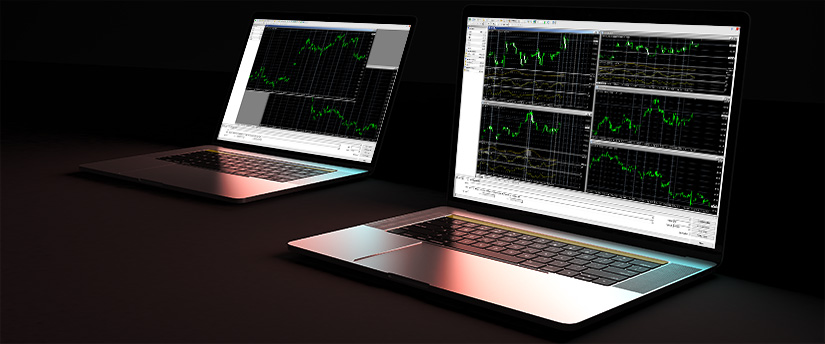
It has been much easier nowadays to start a forex brokerage in India, thanks to technology and new patterns of partnership. One of the most common ways to acquire a trading platform is through a white label forex setup. This means getting to leverage an established broker’s infrastructure and sell forex trading under your brand. However, before you get dived into it, make sure you check the white label forex cost because it is important if you build your business from India.
What is a White Label Forex Solution?
A white label forex solution is a partnership with an established forex broker who provides you with their trading platform, technology, and backend system. You use this system to run your own branded forex brokerage.
Here’s what you typically get in a white label setup:
- A branded MetaTrader 4 (MT4) or MetaTrader 5 (MT5) platform
- Full control over client management and trading terms
- Liquidity connection from top-tier providers
- CRM and client area for managing registrations and KYC
- Backend reporting tools
- Server hosting and IT support
Unlike a grey label model (where you’re somewhat dependent on the main broker), a white label gives you more control, flexibility, and independence. But this also comes with a higher cost.
What is the White Label Forex Cost in INR?
Now, let’s talk about the actual numbers. The white label forex cost depends on several factors, such as the provider, platform (MT4 or MT5), features included, and your level of customization.
Total starting cost: ₹18 to ₹30 lakhs (approx.)
This estimate covers the full launch of your forex brand and running operations for the first few months. Some vendors offer bundled yearly packages with discounts.
What Does the Cost Cover?
When you pay for a white label forex solution, you’re not just getting a trading platform. The package includes:
1. MT4/MT5 Platform Access
You get a fully branded terminal (desktop, mobile, web) for your clients. This is your trading engine and the core of your business.
2. Server Hosting
Your provider handles the server management, ensuring uptime, fast execution, and safety from cyber threats.
3. Liquidity Connection
This allows your platform to access real-time pricing and order execution from top-tier global banks and liquidity providers.
4. Client CRM and IB System
You receive a full back-office system to manage traders, affiliates, deposits, and support tickets.
5. Brand Customization
Your platform, client dashboard, and website are fully customized with your business name, logo, and color scheme.
6. Technical Support
Many providers include 24/7 support and technical maintenance as part of the package.
Why Go for a White Label Instead of Building From Scratch?
Building a forex platform from zero requires:
- Buying a MetaTrader server license (₹70+ lakhs)
- Hiring developers for backend and frontend
- Managing server infrastructure
- Establishing relationships with liquidity providers
- Getting regulatory licenses
This can cost over ₹1 crore and take months of effort. A white label model shortcuts all of this, allowing you to launch in 2–4 weeks at a fraction of the cost.
White Label vs Grey Label Forex: Which is Better?
| Feature | White Label | Grey Label |
| Cost | ₹18–30 lakhs | ₹3–8 lakhs |
| Platform Control | Full admin and pricing control | Limited control |
| Branding | Fully branded | Branded but under main broker |
| Liquidity & Risk Management | Independent | Dependent on parent broker |
| Compliance Responsibility | Higher | Lower |
| Ideal For | Serious long-term brokers | Beginners and influencers |
Choose white label if you’re planning a full-scale brokerage. Grey label is better for testing the market or starting small.
Tips to Save Money on Your White Label Forex Setup
- Negotiate Bundled Packages
Many providers offer discounted bundles that include CRM, IB tools, and liquidity setup in one deal. - Use Cryptocurrency for Funding
If you’re serving Indian clients trading offshore, use crypto wallets to avoid traditional banking limits. - Start with MT4 Instead of MT5
MT4 is cheaper and still widely used by Indian traders. You can upgrade later. - Use Open Source CRM (If Experienced)
If you have a tech team, you can use an open-source CRM to save ₹1–2 lakhs in integration costs. - Avoid Over-Customization Initially
Start with a basic design and spend on customization once you have a steady client base.
Legal Setup for Indian Brokers
Forex trading in India is regulated. Local trading in INR pairs is allowed through SEBI-registered brokers, but offshore trading is not approved for residents under RBI rules.
To avoid legal risk, most white label forex brokers:
- Register a company in offshore locations like Dubai, Mauritius, or Seychelles
- Do not accept direct INR deposits (use crypto, e-wallets)
- Educate clients about risk and include proper disclaimers
Always consult a legal advisor for updated compliance practices.
Conclusion
Launching a forex brokerage under a white label forex model is a great option for Indian entrepreneurs looking to build a serious trading brand. While the white label forex cost may seem high at first, it saves you from spending crores on licenses, developers, and infrastructure.
If done right, this investment can bring long-term profits through client spreads, commissions, and IB networks. Focus on choosing the right provider, offering good customer support, and building trust in the Indian trading community.
How to Choose the Right White Label Forex Provider
When picking a provider, consider:
- Experience in Indian market
- Support for INR-based traders
- Fast server response in Asia region
- Clear pricing with no hidden fees
- Positive client testimonials
- 24/7 technical assistance
You can also ask for a free demo or trial setup before committing.

